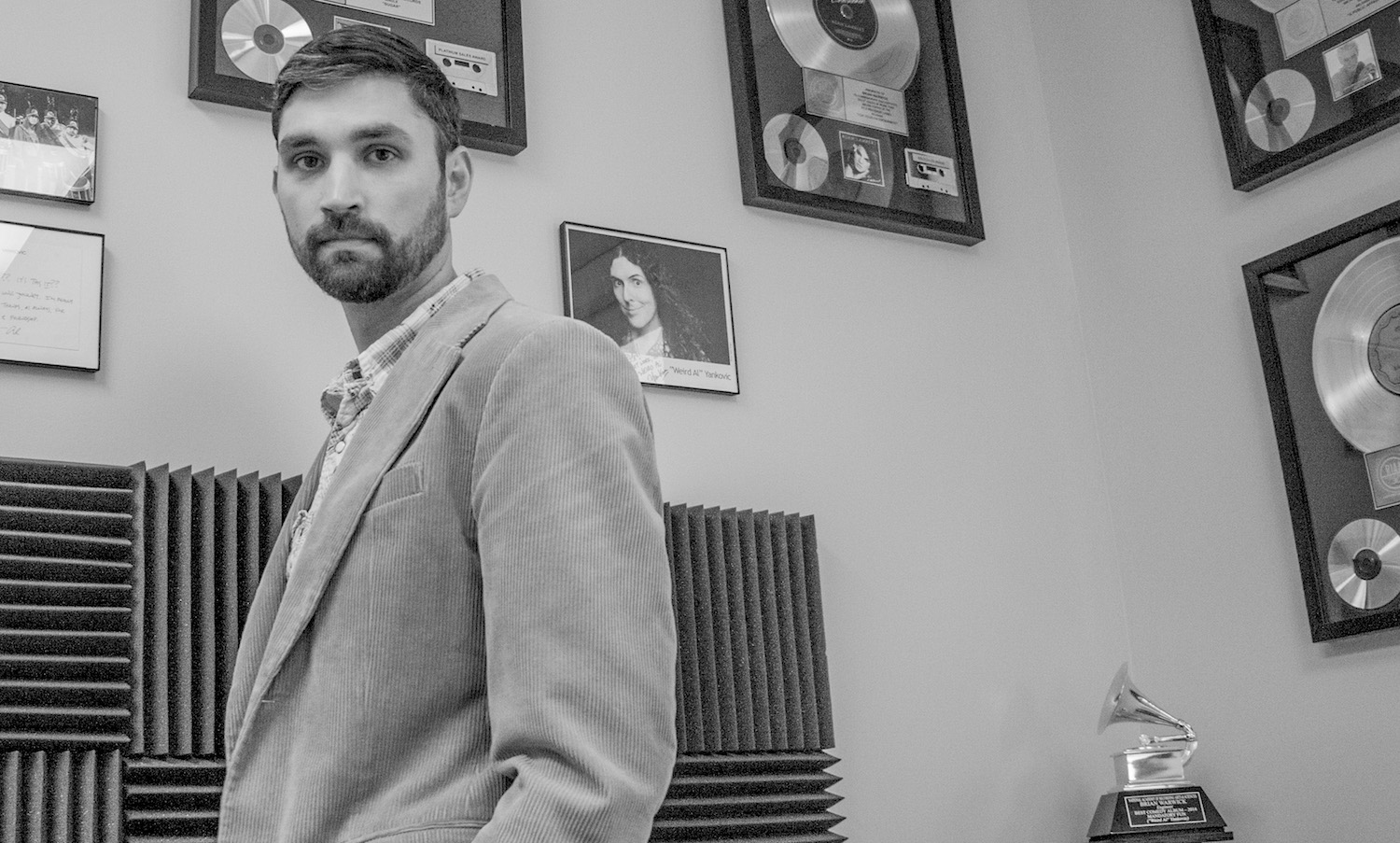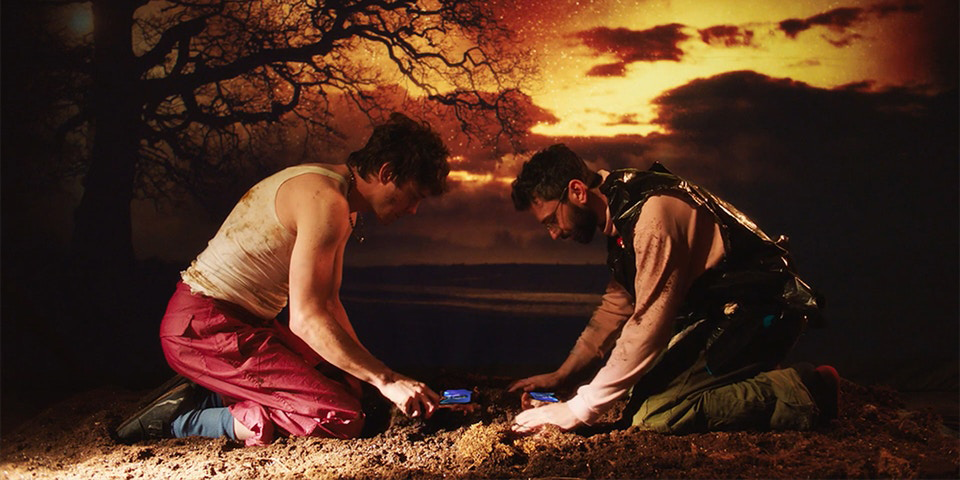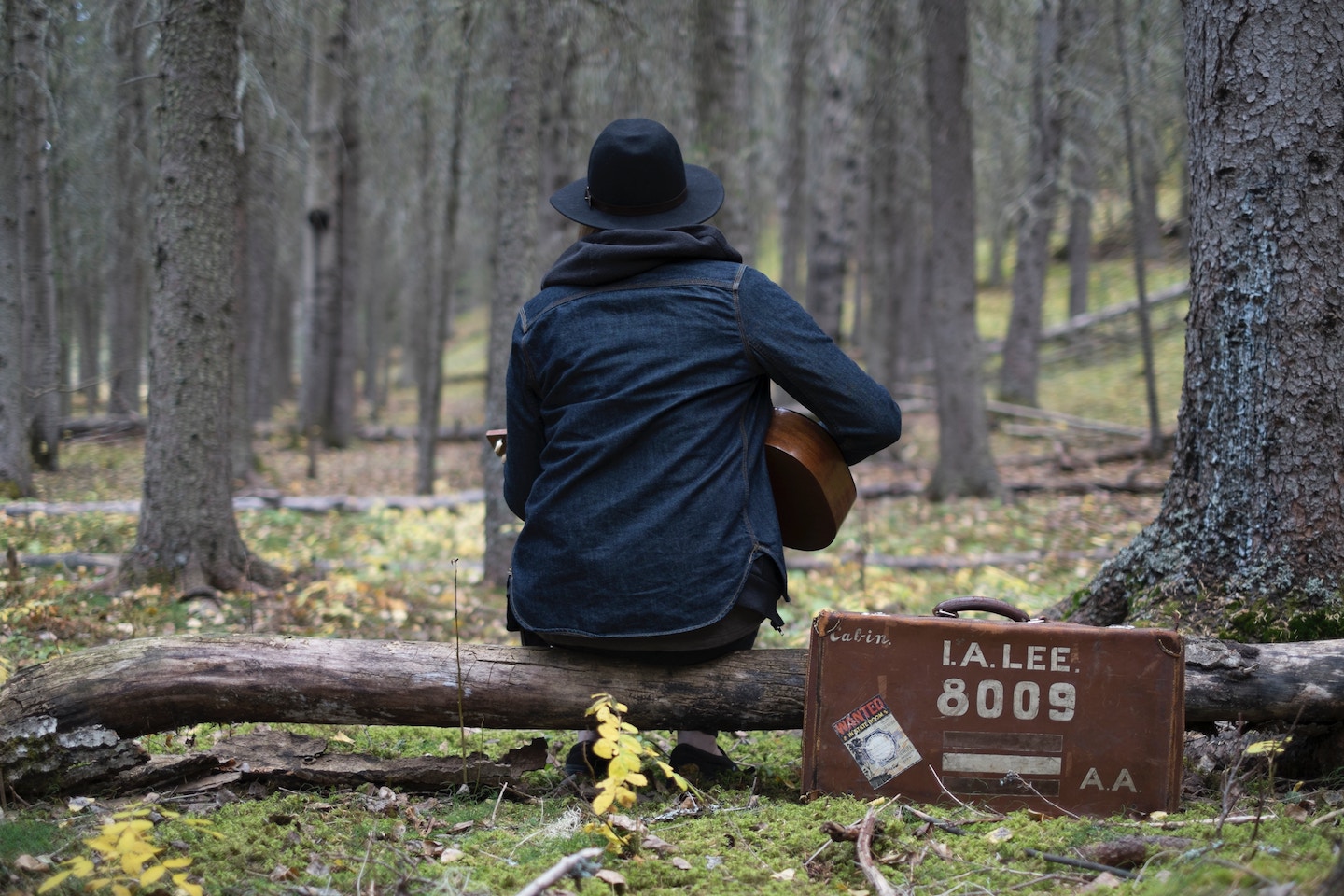
A Conversation with Misha Mansoor of Periphery
We sat down with Misha Mansoor, guitarist and creative force behind Periphery, to chat songwriting, production, and life as a working musician.
"It's the energy I like, which is just crazy when it's right."
Since 2005, Periphery have been combining the heaviest of metal with catchy vocal hooks, intricate melodic riffs, and layered orchestral and electronic elements to create music enjoyed all over the world.
Guitarist and creative force Misha Mansoor has kept busy over the years, not just releasing new music but also establishing two music companies, GetGood Drums and Horizon Devices. But for Misha, like many musicians, it’s still all about the joy of making music.
With the upcoming release of Periphery’s new album HAIL STAN, we sat down to chat with Misha about life as a working musician, Periphery’s new label, and their strikingly collaborative approach to songwriting.
With your new album around the corner, and your single “Blood Eagle” just released, how do you feel?
I feel good. I have an album that—honestly, I know bands always say this, so this is probably going to sound really trite—but I've never been so proud of an album that we've put together. It literally just felt like making music with my best friends. The experience itself was one of my favorite things. And the album that we put together and the fact that we didn't have a deadline or anything like that and we could make it about just making the music, it was just a great experience. I think it yielded the best music that we've made so far.
Would you say you had different results or just better?
I'd say it's better. There are songs on previous albums that I thought were good, but I had always wondered if we had had a bit more time, where we could have gone with it. Could we have made it better? And there were distinct moments with this album, with certain songs, when I was like, "This sounds good, but not great. Should we keep working at it?"
And we did. And then it became great. And sometimes that meant drastic changes to the song, not subtle ones. It's almost a completely different arrangement. But allowing ourselves the time to do that, and allowing ourselves to do that at all and all being on the same page about trying to really narrow it down, what we don't like, and try to address it. I think that was what was probably different about this album.
In terms of songwriting and producing an album, is it true that every member of Periphery is technically a producer or engineer of some sort?
Pretty much. Everyone has input. We have a general rule in the band, which is kind of cheesy but it's true and it works: You don't identify problems, you identify solutions. We found that this was a pretty effective thing.
Let's say the three guitarists have been working on some stuff and really hammering some stuff out, really thinking about it carefully for an entire day, and then you hear the clip the next day and then people are like, "I don't really like it." That's a real buzzkill, and it sucks and it's not productive. If you don't like it, don't say you don't like it, say how can we make it better.
Are there any current production challenges you face working in a large group or have you pretty much ironed them out?
I'd say with Periphery, they have pretty much been ironed out. We just communicate. We're honest when we don't like something, but we try to keep it civil, and we try to improve it. As long as people understand, I think one of the big problems that arise is that there is this sort of sense that when someone is saying, "I don't like this part," because in some ways that is an expression of you, right?
It almost feels like they're saying, "I don't like you," or, "You're not good enough," and I think that's where a lot of these problems stem from. So if it's very clear that that's not the case and there's a genuine understanding that that's not the case beforehand, then it saves us a lot of time because then we can just say, I'm not vibing with this part, let's see how we can fix it, and it has nothing to do with you as a person or a musician.
Periphery have a DIY reputation in the industry. Would you say Periphery is still a DIY band or has it evolved?
I'd say that I don't entirely know how to answer that because I don't really care. How “DIY” we have never really been important to me, it's more the end result. So for example, the big thing people have been asking me recently, "Is a manager worth it?" I'll say, if you have a good manager it's worth it. Our current manager is amazing. He takes a cut but he's generated enough opportunities and works hard enough and takes enough stress out of our lives by doing his work that he's worth every cent that we pay him.
But if you don't feel that way about your manager, then no, you absolutely should not have a manager and then you should be more DIY. It's always a trade-off of stress versus money. And think, as you get older and maybe as you start having a bit more money, you have to weigh your cost-benefit a little bit differently. When we were first starting out, money was very imperative and we didn't mind hustling a bit more to save some money. Whereas now, it's a trade-off for stress and time, and if you want to have a life, if you want to have time for anything other than just doing work 24/7, then you need to outsource some of this stuff. And if you do it well, you'll give it to people who will do a better job than you will. So there's a reason to not label yourself as DIY and take perhaps a bit more pragmatic approach, depending on your situation.
Tell me about when you were just starting out in that mindset. What was the hardest or most time-consuming element of that?
I'd say just that you have to handle absolutely everything. It's a lot of work and then you find yourself wondering when you're going to have time for writing music, 'cause you're just doing so much logistical stuff. Touring is hard at that point in time, you're touring in a van, you're not sleeping, you're not really fit to drive but you have to drive. You're just always tired. But we were younger then and it was exciting, so were quite happy overall, it was just very hard work and that just got easier as time went on.
With the new album, how much of the album pre-production did the band do at home?
We did all the instrumental pre-production at my place, and Spencer Sotello, lead vocalist, did all the pre-production for the vocals in his studio, which used to be a few miles away from me and now is halfway across the country. But we timed it so that we got most of that work done before I moved. Really, the whole album was done in home studios except for the drums, because the drums need to be done in a proper room.
Regarding the orchestral and other virtual elements in your music, do you compose or arrange those parts in addition to playing guitar?
Yeah that's something I'm really passionate about. I got into that a few years ago. And it was in the same way that I discovered one day that you can record music on a computer, and it opened up this entire world. I was like, "You can record a realistic sounding orchestra on the computer?" That opened up an entire world of that. So that became something that I was just writing in for fun and then integrating wherever it fit.
Does your vocalist also work on his own parts?
Spencer is just a really good producer, and he knows exactly what he wants to do with vocals, so he's the best person to tackle that. I'll come in and help him with the writing because we work well together, but when it comes to actually processing and effects and just vocal production, he's amazing, he does that for other bands so that's just a great resource to have.
Can you talk a bit about the iZotope plug-ins you used on the song?
Yeah, on some electronic bits, it's always fun to chop stuff up and then mangle it some more with Stutter Edit. Sutter Edit was used, BreakTweaker was used. I was using the Ozone Tape Saturation on some parts. We used VocalSynth on some vocal stuff, it's just good for some weird effects. Oh yeah, we used Iris 2 for some synth layers and for some synth stuff.
We actually used the RX tools quite a bit. That's actually a really good tool set to have because there were just some things that happened that we didn't catch until later, like some noises and whatever and I was able to quickly fix that with De-click. I was kind of stressing, crossing my fingers that it would work but it worked really well rather than having to figure out some other way to fix it.
Honestly, there's a lot of iZotope stuff that I rely on. It's just stuff that you reach for and it worked and it's less about, I'm going to use this [plug-in], you're going through your stuff and you're like, let's see how that sounds. We just roll with that stuff. We have this process we call “spice racking,” which is once we've got everything in place then we really start to get a little creative, play around with stuff. You're reaching for the “spice rack” and seeing what you can do right at the end. So that's where a lot of stuff comes into play and, it's very spur of the moment.
What about mixing and mastering?
Yeah, he (Adam Getgood) does the mixing, and Spencer and I who are the two people in the band who probably care the most about the mix, we flew out to mix it with him. He mixed it but we were there giving our input. Because if Spencer and I are happy then the rest of the band will be happy. And everyone was also giving their input but it was probably more important for Spencer and I to be there in the moment to make the in-time adjustments.
Then we'd send it off to Ermin Hamidovic to master it, who's mastered everything since I believe Juggernaut and all our side projects too. He's just the best. So we kind of have that system. It's always worked for us, it's a good environment, a good way to do our albums. It's hard to imagine not going through that process like that, you know?
I don't know what your philosophy is on this but I actively like to have a second set of ears. Especially by the time an album is going to mastering, I've heard the album so many times, especially because I'm always there for mixing that I don't know what's what anymore and you just start to go crazy. And having a fresh set of ears on someone that you trust is great. And if they catch something, you know you can trust that as well.
Do you have any advice to give to musicians or producers who want to record and release their own music while also trying to tour?
Well, a big part of getting your music noticed unfortunately is going out and playing, so you're at a bit of a disadvantage there. But really all you can do at this stage is just do a good job, put it out and hope people notice. Post it wherever you can, you could consider spending money on ads but I don't know, the ROI on that is pretty bad. Since you're selling a stream at best most of the time, it's very hard to track how that's working.
But really, there is no massive secret to that. If there was, everyone would be doing it. But I think with the streaming model, it makes it a lot tough[er]. So get a Bandcamp going if you're not with a label, get TuneCore going so your stuff is everywhere. Just try to see if you can get that on Spotify playlist, if you can capture anyone's attention, if you can get some video content that happens to resonate with people, that works too. But that's a tough and expensive gamble as well.
It's an easy industry to make [and] produce music and get it out there but it's a tough industry to get noticed, maybe because of how easy it is to saturate this market. So if you're just by yourself in your bedroom, you may not have all the tools that a touring band would have. Being a good, live band and playing shows can help you get noticed in a way that just having online notoriety can't.


